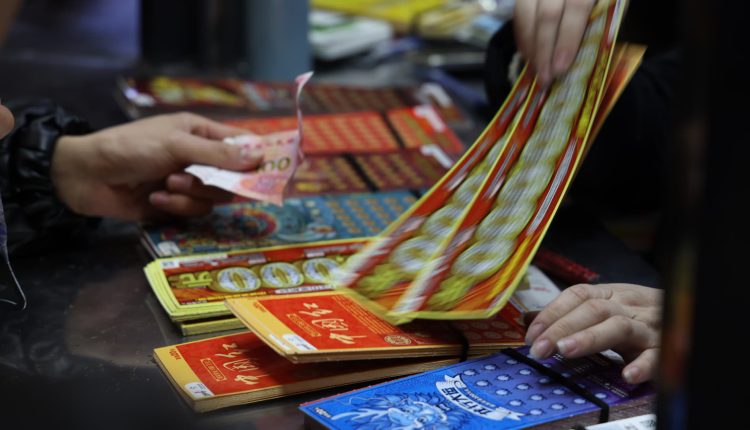Goldman Sachs says these China stocks can win even if there’s a repeat of Japan’s lost decades
The China playbook is changing, after decades of rapid growth. Whether the country is headed toward an extreme of Japan-style stagnation remains to be seen. China’s attempt to transition to what Beijing calls high-quality growth will take time to play out. Goldman Sachs calls the China story today one of “rebalancing,” and has picked 40 buy-rated stocks to play the theme. “One key takeaway from the past year is that there are ways to make money even in a sustained bear market, akin to the experiences from Japan’s lost decades,” Goldman’s Chief China Equity Strategist Kinger Lau and a team wrote in a Jan. 9 report. They predict certain consumer names, artificial intelligence companies and rising global players will be among the Chinese stocks that can do well. China equities have yet to shake off the doldrums of 2023. The mainland Chinese and Hong Kong stock indexes are all down for the year so far. “People often aspire for positive changes at the start of the year. However, the sentiment of investors and policy advisors attending our China New Economy Summit in Beijing last week remained weak,” Morgan Stanley’s Chief China Economist Robin Xing said in a Jan. 11 report. “What is the way out? Swifter shift to active fiscal easing and economic rebalancing towards consumption,” the report said. December data and fourth-quarter GDP due out late Tuesday New York time may give more clues on China’s economic trajectory — and whether policymakers need to act. Goldman predicts China grew by 5.3% last year, and forecasts a slowdown to 4.8% this year. “While underperforming global equities in 2023, MSCI China has recorded three +10% tradable rallies during the year,” Lau wrote in a separate report earlier this month, noting the gains typically centered on policy expectations. The report also pointed out that both mutual and hedge fund mandates globally are running multi-year low allocations to Chinese stocks. Against such uncertainty, China’s top officials are stepping up engagement with the international finance world again. Premier Li Qiang is set to speak Tuesday at Davos. Chinese Vice Premier He Lifeng in the past week met with global financial executives who are part of the Chinese securities regulator’s international advisory council. Its listed members include executives at Invesco and Goldman Sachs. Vice Premier He is also director of the office of the Central Commission for Financial and Economic Affairs, a position once held by trade negotiator Liu He. For China’s economic outlook, comparisons to Japan may ultimately be more academic as the debate has become more about the extent to which national security has replaced economic growth as the priority. Beijing has made clear it wants to bolster domestic tech capabilities, while dialing back on debt-driven growth. Goldman’s picks Goldman’s rebalancing stock picks include what are called “little giants,” companies Chinese authorities have selected to support out of strategic interest. The four such names in the portfolio are: Friendess Electronics — a Shanghai-listed company that sells hardware and software systems for laser cutting. Asymchem Laboratories — a contract developer and manufacturer of drugs. Several of its facilities are registered with the U.S. Food and Drug Administration as establishments that manufacture drugs distributed in the U.S. or available for import to the U.S. The stock is listed in Shenzhen and Hong Kong. StarPower Semiconductor — a manufacturer of power semiconductors, used to control electricity flow in home appliances and solar power grids. The company is listed in Shanghai and has a branch in Europe. SICC —a producer of silicon carbide, which is used to make semiconductors. The company is listed in Shanghai and has a subsidiary in Japan. Even under a state more concerned with security, private sector investment in manufacturing is “very strong,” Arthur Kroeber, partner at Gavekal Dragonomics, told The Wire China late last year. “What that tells you is people are still moving ahead with a lot of opportunities in various sectors,” he said, pointing to cancer drugs, industrial robots and clean energy equipment. Beijing’s official language casts the matter as one of “high-quality development.” “Very often I’m asked the question, will China ignore development as it talks more about security?” Liu Jianchao, minister of the international department of the Chinese Communist Party’s Central Committee, said at a Council on Foreign Relations event last week. “We believe high quality of development can only be achieved in a highly secure environment,” Liu said. “But what we pursue is a balanced and positive interplay between security and development. We will never ignore development. And it holds the key to solving all the problems and challenges in China.” — CNBC’s Michael Bloom contributed to this report.
Read the full article here

